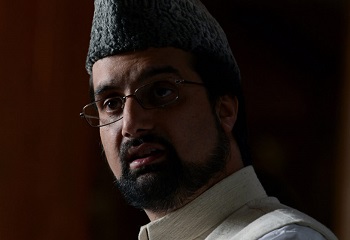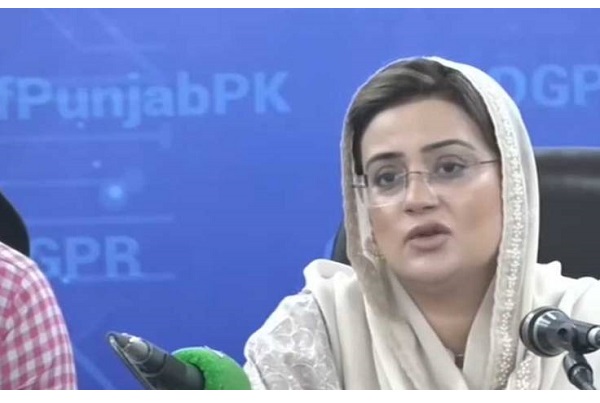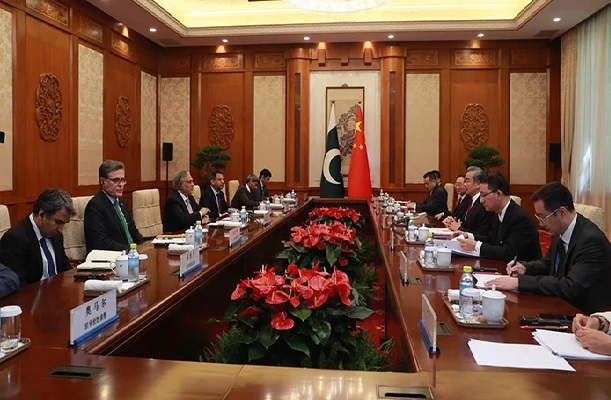ISLAMABAD: The Pakistan Army successfully conducted the test-launch of Fatah-II guided rocket system that has a range of 400 kilometres.
Dozens of Kashmiri leaders from the occupied valley remain imprisoned as the government in New Delhi seeks to marginalise them, according to sources and figures from a rights group.
Authorities in New Delhi see the removal of activists from communities in the Kashmir Valley as a key aspect of the struggle against the armed groups and stone-pelting youths who have been fighting Indian occupation, according to interviews with 10 people familiar with the situation.
The round-up of non-violent Kashmiri leaders, who support Indian-held Kashmir either joining Pakistan or becoming an independent state, is part of an unprecedented crackdown from India’s government to neuter a movement it believes fuels the armed insurrection, the sources said. That includes restrictions on the movement of the few political leaders who are out of jail, pressure on foreign diplomats not to meet them, and the recent banning of a number of unarmed Kashmiri organisations.
The sources include Kashmiri leaders, diplomats, security officials, senior members of India’s ruling party and others familiar with the government’s thinking in several ministries in New Delhi.
“Action will be taken on whoever is connected or fuelling (Kashmiri groups) in whatever way,” one source familiar with the Indian government’s thinking said.
Tensions in the region have been elevated since a suicide bomb attack killed 40 Indian paramilitary troops on Feb 14 and brought the two countries to the brink of war.
More than a hundred people with links to Kashmiri groups were arrested in midnight raids in February, including the family members of prominent leaders, according to police officials. Some of these people have since been released, but the numbers still in jail are likely unprecedented in the history of the region, according to Khurram Parvez, coordinator of the Jammu and Kashmir Coalition of Civil Society (JKCCS), a prominent human rights group.
A previously unpublished list from JKCCS shows that at least 33 senior figures – the vast majority of the movement’s leadership – remain in jail. The exact numbers of those in jail, however, could not be determined.
Ten of these people – including Yasin Malik, head of the Jammu and Kashmir Liberation Front, one of the most prominent Kashmiri groups – are being held in New Delhi. The decision to move them to the capital from Kashmir is a deliberate strategy aimed at preventing visits from supporters, according to two sources familiar with the government’s thinking. “Moving them out is a tactic,” one of the sources said. “It is to make them ineffective.”
Malik and most of the other leaders are being held under the Public Safety Act (PSA), a special law in Jammu and Kashmir state that allows for detention for up to two years without charge. The law was amended last year to allow detainees to be moved out of the state.
A spokesman for India’s home ministry did not respond to questions on the number of people connected to the Kashmir struggle currently in prison, or when those held under PSA would be charged.
Malik’s group, the Jammu and Kashmir Liberation Front, publicly renounced violence in the mid-1990s, but India says it retains ties with armed groups and banned it in March this year.
Previous governments have treated the Kashmiri leaders with caution, but have occasionally reached out, most prominently in 2004 when then-Deputy Prime Minister LK Advani, from the same Bharatiya Janata Party (BJP) as current Prime Minister Narendra Modi, held talks with Mirwaiz Umar Farooq. Now, though, the government’s position is much more hardline.
Ram Madhav, a national general secretary of the BJP, who has a major role in setting policy on Kashmir, indicated there is currently little appetite in New Delhi for a renewed attempt at dialogue. He pointed to overtures made by the government during a bloody period in Kashmir in 2016 that were rejected by the Kashmiri leadership. “They can’t decide about when to hold talks, (and when) not to hold talks,” he said.
Farooq, chairman of the All Parties Hurriyat (Freedom) Conference, is now one of the few leaders not in jail. “We’re not allowed rallies, we’re not allowed to meet people we want, we can’t go outside the city,” he said. Including lower-level members, as well as relatives and associates, he estimated there could be as many as 250 people with links to Kashmiri groups currently imprisoned in Srinagar and elsewhere in India.
His role as the Mirwaiz of Kashmir – a hereditary title considered one of the most important spiritual positions in the region – was likely the reason he had been spared jail, he said, though he was often placed under unofficial house arrest, forbidden from leaving on sensitive days.
India is also placing increasing pressure on foreign envoys not to meet with those connected with the movement. Two foreign diplomats based in New Delhi said that while the Indian government had no official prohibition on meeting Kashmiri leaders in Kashmir, they were closely monitored while visiting the region and informally deterred from meeting them. “Meeting Kashmiri leaders in jail or under house arrest is out of the question, but up until a few years ago we used to be able to meet with those that weren’t,” said one of the diplomats, who has visited the region but not met with any Kashmiri leader. “Now the government would freak out if I tried. It would risk creating a diplomatic incident between our countries,” he said.
A spokesman for India’s foreign ministry said that guidelines for foreign diplomats visiting the region were set by the home ministry and included ‘not meeting person(s) who are indulged in anti-national activities’.
India’s home ministry did not respond to a question on whether there were any prohibitions on diplomats.
While the first half of the year was one of the deadliest in Kashmir’s recent history, with more than 300 people dying in the conflict, there has been a noticeable decrease in low-level disorder since the round-up began in February, according to three military and government officials. Several Indian government officials said that unarmed Kashmiri groups were responsible for funding mobs of stone-pelting youths that often confront security forces trying to maintain order in the region. “Either they are fuelling, or have links, or provide funds (to freedom fighters),” a source familiar with the government’s thinking said.
You May Also Like
LAHORE: The Punjab government of Maryam Nawaz is introducing new defamation law in a bid to ‘stop fake news’. “A person who lies
BEIJING: China is ready to work with Pakistan to develop an “upgraded version” of the China-Pakistan Economic Corridor (CPEC) project






